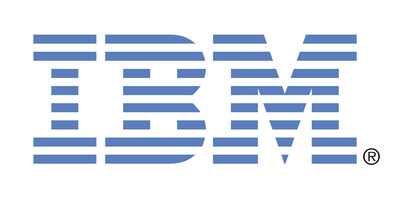European Commission Challenges Facebook Marketplace: A Closer Look
In a significant move, the European Commission has recently claimed that Facebook Marketplace has been hampering competition amongst online marketplaces in Europe. This decision is stirring discussions about the dynamics of online classifieds in the region. It has sparked a heated debate about whether this new player in the marketplace landscape is being unfairly targeted, potentially protecting larger, established companies from fresh competition. Facebook, now under its parent company Meta, plans to appeal this decision, asserting that it firmly believes in serving European consumers effectively.
The Rise of Facebook Marketplace
Since its inception, Facebook has been a platform where users naturally engaged in buying and selling activities. When Facebook Marketplace was launched globally in 2016, it was not just a new feature but an evolution of existing user behavior. People in the European Economic Area had already formed over 400,000 groups dedicated to trading goods and services on Facebook. The aim of Facebook Marketplace was to streamline this process, making it more accessible and user-friendly. By offering a new avenue for buying and selling items without charging fees, Facebook Marketplace introduced a fresh option to European consumers, challenging the dominance of established online marketplaces.
Interestingly, the German competition authority, the Bundeskartellamt, had previously acknowledged the positive impact of new entrants like Facebook Marketplace on the competitive landscape. This acknowledgment came during a merger decision involving other major players, highlighting the importance of new competition in fostering a diverse market environment.
A Lengthy Investigation with No Clear Evidence
The European Commission’s decision has been based on the idea that Meta, Facebook’s parent company, is illegally tying Facebook Marketplace to its social media platform. This argument suggests that Facebook users are compelled to use the Marketplace, which Meta strongly disputes. According to Meta, engagement with the Marketplace is entirely optional; users choose to use it based on preference, not obligation.
Another point of contention is the claim that Meta could potentially exploit advertising data from rival marketplaces that advertise on Facebook to boost its Marketplace. Meta refutes this accusation, emphasizing that it has established robust systems to prevent such use of advertisers’ data. Despite an extensive investigation, the Commission has not presented concrete evidence showing harm to competitors. Instead, it suggests that Facebook Marketplace’s presence might hinder the growth of established online marketplaces. However, these incumbents, such as eBay, Leboncoin, and others, continue to report substantial growth and financial success, indicating a thriving competitive environment.
A Potential Misstep in Competition Law
Meta argues that the European Commission’s stance overlooks the actual evidence and hinges on hypothetical scenarios of competition harm. This approach, Meta contends, misinterprets the essence of EU competition law, which is meant to protect consumer interests and foster competitive processes, not to maintain the status quo of established market players. Ironically, by targeting an innovative and free service like Facebook Marketplace, the decision could stifle innovation and consumer choice, contrary to calls from European leaders for a more competitive and forward-thinking market.
Moving Forward
Meta is set to appeal the European Commission’s decision, demonstrating its commitment to maintaining Facebook Marketplace in Europe. While the company intends to comply with the ruling, it is also actively working on developing solutions that address the Commission’s concerns. Meta plans to announce these developments soon, aiming to reassure its European user base of the Marketplace’s continued presence and dedication to meeting their needs.
Understanding the Marketplace Dynamics
To better understand this situation, it’s essential to consider the broader context of online marketplaces. These platforms serve as digital arenas where buyers and sellers can interact, offering a wide range of goods and services. Established players like eBay have long dominated this space, but the emergence of Facebook Marketplace highlighted the potential for innovation and new consumer experiences.
Facebook Marketplace’s integration with the social media platform adds a unique layer of connectivity, allowing users to engage with familiar interfaces while exploring new buying and selling options. This integration not only enhances user experience but also democratizes access to marketplace services, particularly for those who might not have engaged with traditional platforms.
The Role of Regulation
The ongoing scrutiny by the European Commission reflects a broader trend of regulatory bodies examining the influence of tech giants on market competition. As digital platforms continue to expand their reach, regulators face the challenge of balancing innovation with fair competition. While regulation aims to prevent monopolistic practices, it must also ensure that new entrants can thrive, fostering a healthy competitive ecosystem.
Looking Ahead
As Meta navigates the appeal process, the outcome will likely have significant implications for the future of online marketplaces in Europe. It will set a precedent for how regulators address competition concerns in the age of digital platforms. For consumers, this decision underscores the importance of having diverse options and the role of innovation in shaping their online experiences.
In conclusion, the European Commission’s decision against Facebook Marketplace has sparked a critical conversation about the intersection of competition, innovation, and regulation in the digital age. As this situation unfolds, stakeholders across the board will be keenly watching the developments, eager to understand how they will shape the future of online marketplaces in Europe and beyond. For more detailed insights, refer to the official announcements and documents available on the European Commission’s website.
For more Information, Refer to this article.

































